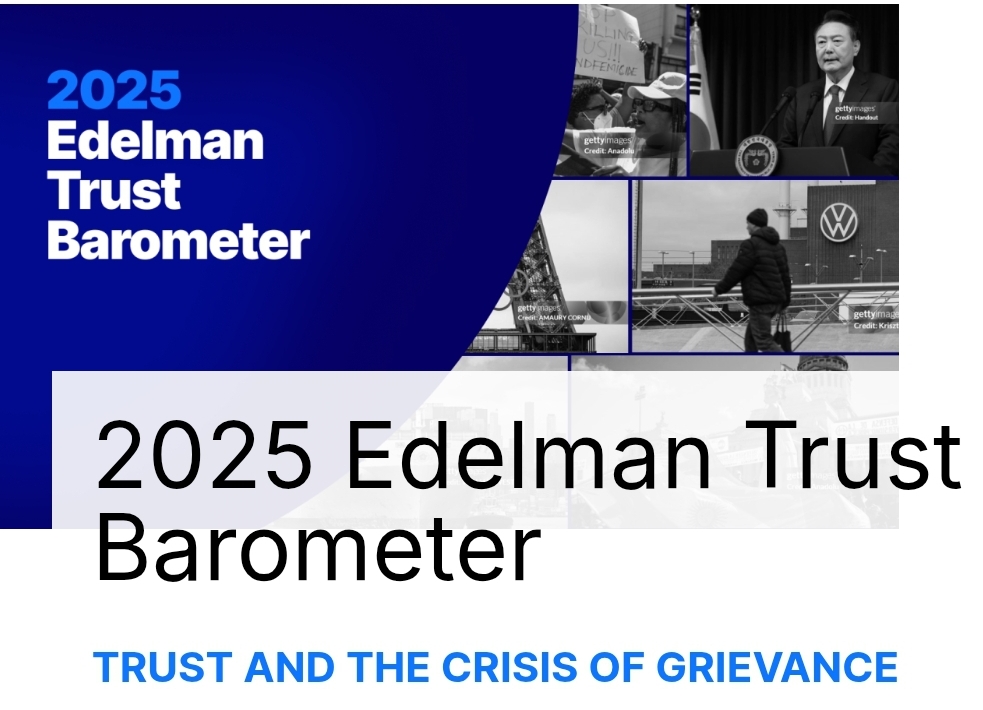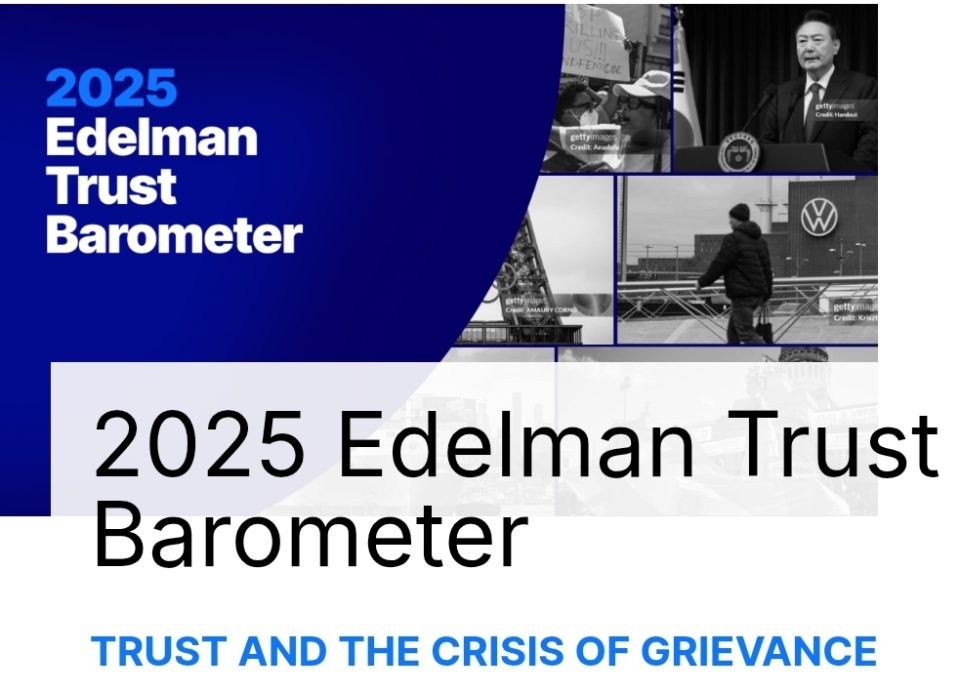Customer Experience in a Grievance-Based Society: A Path Toward Trust Restoration Reveals 2025 Edelman Trust Barometer
The 2025 Edelman Trust Barometer reveals a profound shift in public sentiment, highlighting grievances with institutions like government and business. This shift not only challenges existing norms but also reshapes the expectations of customers. As trust becomes increasingly fragmented, organizations must navigate this volatile landscape with customer-centric strategies designed to rebuild credibility, foster loyalty, and address societal challenges.
2025 Edelman Trust Barometer: Understanding the Trust Crisis
Public trust in institutions has significantly eroded, with six in ten respondents expressing moderate to high levels of grievance. This grievance stems from economic fears, perceived inequality, and a sense of exclusion from decision-making processes. Moreover, a zero-sum mindset, where individuals view others’ gains as their losses, exacerbates societal polarization.
Amid this context, fear of discrimination has surged, with 63% of respondents fearing unfair treatment based on identity factors. These findings underline the urgency for businesses to adopt inclusive and empathetic practices. Addressing these grievances is not only a moral imperative but also a strategic necessity for enhancing customer experience (CX).
2025 Edelman Trust Barometer: CX as a Trust-Building Tool
To counteract societal grievances, businesses must prioritize customer trust. First, companies should embrace transparency by clearly communicating their values, goals, and efforts. Transparency fosters trust by ensuring customers feel informed and respected. For instance, organizations can use storytelling to showcase their commitment to societal issues like sustainability or diversity.
Second, businesses must deliver consistent, personalized experiences that resonate with their customers’ unique needs. By leveraging data responsibly, companies can anticipate customer expectations and offer tailored solutions. However, ensuring data privacy and ethical use remains critical, as 69% of respondents worry about being misled by institutional leaders.
Addressing Economic Fears Through CX
Economic fears, including job insecurity and skill obsolescence, weigh heavily on public trust. Consequently, businesses should take proactive steps to address these concerns. Offering upskilling programs, creating equitable opportunities, and promoting workforce diversity can significantly improve public perception. Furthermore, companies that champion fair pricing and demonstrate empathy during economic hardships strengthen their relationships with customers.
For example, retailers can introduce loyalty programs that prioritize affordability without compromising quality. Similarly, service providers can design flexible payment options to ease financial burdens. These measures not only enhance customer satisfaction but also position businesses as allies in challenging times.
Collaboration Across Institutions
The 2025 Edelman Trust Barometer underscores the importance of collaborative efforts among businesses, NGOs, government, and media. While businesses are perceived as more competent and ethical than governments, they cannot act in isolation. Partnering with trusted NGOs can amplify credibility and extend the reach of social impact initiatives.
Moreover, businesses must advocate for systemic changes, such as promoting media literacy to combat misinformation. By funding educational campaigns or supporting fact-checking platforms, companies can empower customers to make informed decisions. This approach not only benefits society but also reinforces the company’s reputation as a responsible entity.
Tackling Polarization with Empathy
Polarization remains a significant barrier to trust. To bridge divides, businesses should foster inclusive dialogue and create platforms where diverse voices are heard. Encouraging feedback through surveys or community forums enables companies to understand varying perspectives and adapt their strategies accordingly.
For instance, a company might host town hall meetings to address local concerns or collaborate with community leaders to co-create solutions. These initiatives demonstrate a commitment to shared progress, fostering goodwill and reducing grievances.
Leveraging Technology for Enhanced CX
Every technology has a critical role to play in transforming customer experiences. By adopting AI-powered tools, businesses can enhance personalization, streamline interactions, and resolve issues efficiently. However, as automation becomes prevalent, maintaining a human touch is essential to avoid alienating customers.
For instance, integrating chatbots with empathetic language models can improve customer support while ensuring queries are addressed promptly. Simultaneously, providing access to live agents for complex concerns reinforces trust by demonstrating a commitment to customer satisfaction.
Promoting Information Integrity
Confusion over credible information undermines trust, making it harder for customers to differentiate between reliable and deceptive sources. Businesses must act as stewards of truth by ensuring their communications are accurate, consistent, and transparent. Moreover, organizations should avoid sensationalism and focus on delivering value-driven content.
For example, brands can create educational campaigns that address common misconceptions or share insights on industry trends. By becoming trusted sources of information, companies can strengthen their relationships with customers and stakeholders alike.
Building Resilience in a Grievance-Based Society
In a grievance-driven society, resilience is key to long-term success. Businesses must continuously adapt to evolving expectations and demonstrate a willingness to learn from their customers. Regularly monitoring public sentiment through surveys or social listening tools allows companies to stay attuned to emerging concerns.
Furthermore, fostering a culture of accountability ensures organizations remain aligned with their commitments. For example, publishing progress reports on sustainability goals or diversity initiatives demonstrates transparency and builds credibility over time.

Conclusion: A Call to Action
The findings of the 2025 Edelman Trust Barometer serve as a wake-up call for businesses and institutions alike. As grievances deepen and polarization intensifies, rebuilding trust requires a concerted effort to prioritize customer-centricity, transparency, and inclusivity. By addressing societal challenges with empathy and integrity, businesses can transform grievance into opportunity, fostering stronger relationships with their customers and communities.
Ultimately, restoring trust is not just about improving customer experience; it is about shaping a more equitable, sustainable, and hopeful future for all.

